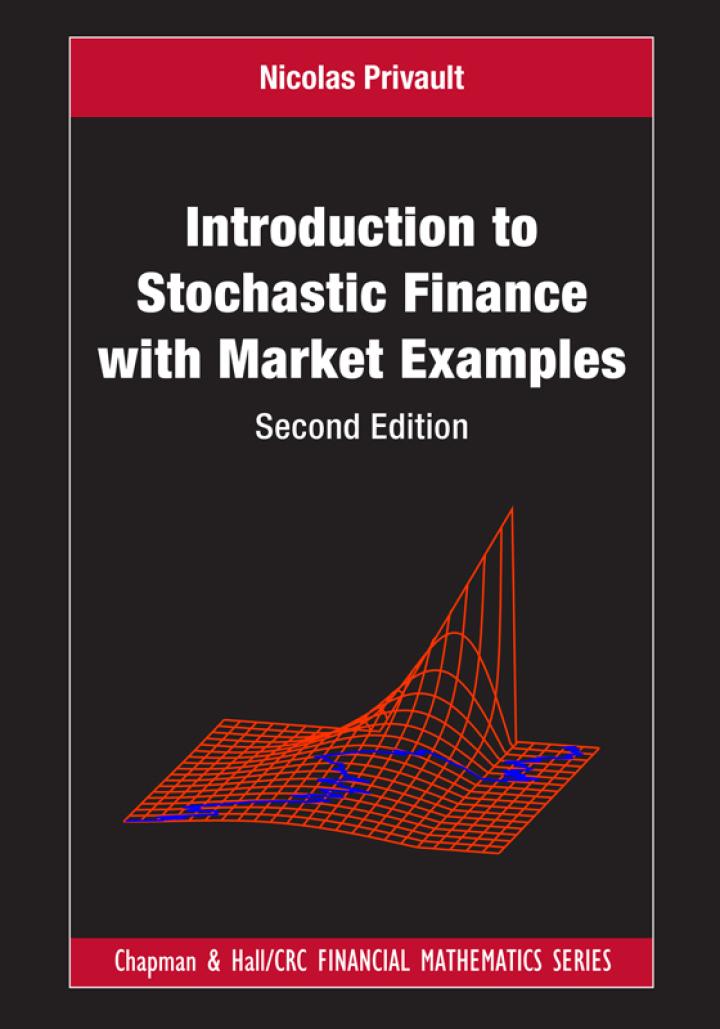Given (S_{t}:=S_{0} mathrm{e}^{sigma B_{t}+r t-sigma^{2} t / 2}) a geometric Brownian motion and letting [widetilde{Z}_{t}:=frac{mathrm{e}^{-(T-t) r}}{S_{t}}left(frac{1}{T} int_{0}^{t}
Question:
Given \(S_{t}:=S_{0} \mathrm{e}^{\sigma B_{t}+r t-\sigma^{2} t / 2}\) a geometric Brownian motion and letting
\[\widetilde{Z}_{t}:=\frac{\mathrm{e}^{-(T-t) r}}{S_{t}}\left(\frac{1}{T} \int_{0}^{t} S_{u} d u-K\right)=\frac{\mathrm{e}^{-(T-t) r}}{S_{t}}\left(\frac{\Lambda_{t}}{T}-K\right), \quad 0 \leqslant t \leqslant T\]
find the PDE satisfied by the pricing function \(\widetilde{g}(t, z)\) such that
\[S_{t} \widetilde{g}\left(t, \widetilde{Z}_{t}\right)=\mathrm{e}^{-(T-t) r} \mathbb{E}^{*}\left[\left.\left(\frac{1}{T} \int_{0}^{T} S_{u} d u-K\right)^{+} \rightvert\, \mathcal{F}_{t}\right]\]
Fantastic news! We've Found the answer you've been seeking!
Step by Step Answer:
Related Book For 

Introduction To Stochastic Finance With Market Examples
ISBN: 9781032288277
2nd Edition
Authors: Nicolas Privault
Question Posted:





